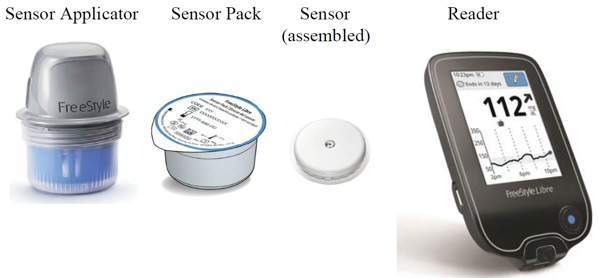
The Freestyle Libre 14 Day Flash glucose monitoring system can be used by adult patients to make diabetes treatment decisions without obtaining a blood sample from the fingertip (fingerstick).
It is claimed to be the longest lasting self-applied personal glucose sensor available on the market. People with diabetes can wear the sensor up to 14 days with high accuracy.
The FreeStyle Libre and FreeStyle Libre 14 day flash glucose monitoring systems are continuous glucose monitoring (CGM) devices developed to replace blood glucose testing and detecting trends and tracking patterns for detecting episodes of hyperglycemia (low-glucose levels) and hypoglycemia (high-glucose levels).
The FreeStyle Libre system, which was first introduced in Europe in 2014, with a 14-day wear time will help to avoid the need for fingersticks.
In the US, the FreeStyle Libre system with a 10-day wear time was approved to replace blood BGM for adults with diabetes.
With one-second scan, the users can check real-time glucose readings, and identify glucose trends with a directional arrow and review eight hours of glucose history.
The sensor is worn on the back of the upper arm and is the size of two stacked quarters, said Abbott.
Both clinical data and real-world evidence proved the efficacy of FreeStyle Libre system, which demonstrated that people who scan more frequently spend less time in hypoglycemia or hyperglycemia.
The data also showed that the system improved average glucose levels.
According to the company, the FreeStyle Libre 14 day system has a one-hour warmup and better accuracy compared to the FreeStyle Libre 10 day system with a mean absolute relative difference (MARD) of 9.4 compared to 9.7.
Abbott diabetes care senior vice president Jared Watkin said: “At Abbott, we are continuously pushing for new innovations that minimize the daily burden of managing diabetes.
“With the new FreeStyle Libre 14 day system, people with diabetes will now have extended access to their glucose data with a high degree of accuracy, which will improve their experience and help empower them to better manage their condition.”






